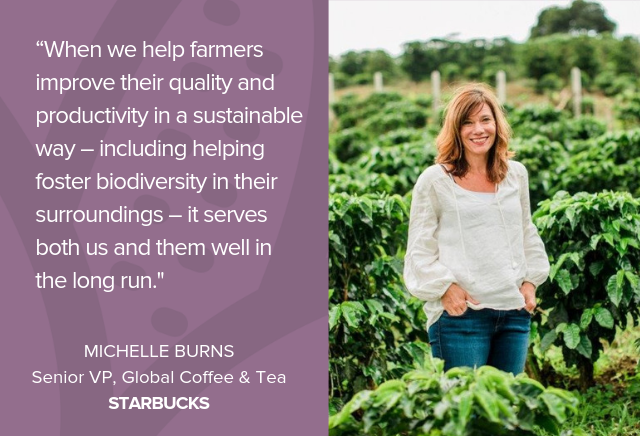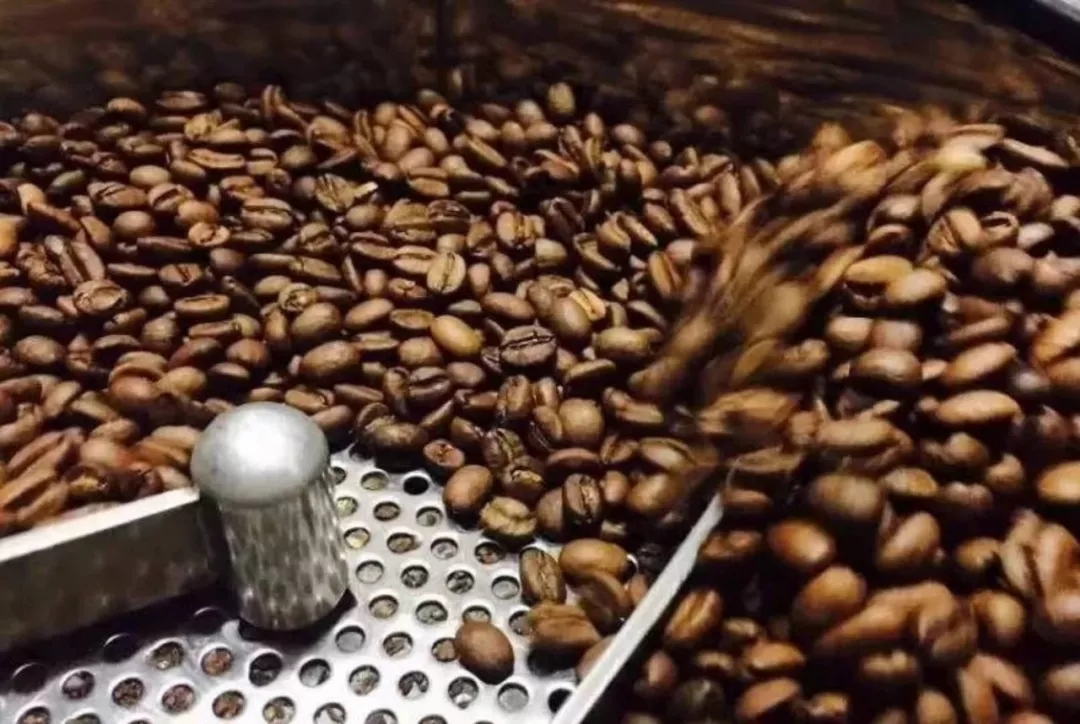Bean selection Ecology of Starbucks: using Purchasing to achieve Sustainable Management

Professional coffee knowledge exchange more coffee bean information please follow the coffee workshop (Wechat official account cafe_style)
As a multinational company that consumes 3% of the world's coffee beans a year, how does Starbucks fulfill its corporate responsibility on environmental issues through strict procurement standards? You may be able to answer through the description of Michelle Burns, the vice president who is responsible for leading Starbucks' coffee and tea procurement strategy.

For more than 15 years, Starbucks has worked with Conservation International (Conservation International) to develop ethical procurement standards that have been called Fair practices for Coffee and Farmers (CAFE Practice). More than 99% of Starbucks' coffee beans have to be selected through this rigorous process. Auditors will examine whether the operation of coffee farms meets the standards through a number of tests, mainly from the aspects of social responsibility, environmental leadership and economic accountability, and the need to ensure that coffee farms comply with the two core criteria of biodiversity conservation and wildlife habitat.
Here are a few items that have a better understanding of the audit criteria:
. with irrigation tracking
. have the control of surface erosion and the retention of soil output value.
. there is proper protection of wild animals
. minimizing water resources consumption
. minimize the impact of sewage
. ability to improve productivity from a long-term perspective (pruning and renovation to increase production capacity, or cooperation with research institutions), etc.

In order to help farmers grow coffee beans that meet the standards of fair practice, Starbucks has not only established nine agronomic support centers in important global coffee producing areas, such as Guatemala, Ethiopia and Colombia, to provide agricultural technology and resources to local farmers, but also committed to providing 100 million healthy coffee trees to farmers in an attempt to increase land productivity and maintain biodiversity. So that farmers do not need to reclaim too much forest space in exchange for economic profits. This is the core of the fair practice (CAFE Practice) program, zero tolerance for Deforestation.
"when we help farmers increase the output and production capacity of their beans in an ecologically sustainable way, and take care of inter-regional biodiversity, no matter whether farmers sell their beans to Starbucks or not, in the long run, it will still be a win-win situation beneficial to each other. "Michelle Burns said.

Since 2015, Starbucks has worked with conservation international organizations to conceive and launch the sustainable coffee challenge (Sustainable Coffee Challenge). Today, more than 100 international partners have joined us to turn coffee into the world's first sustainable agricultural product. In addition, Starbucks, as a supporter of the International Coffee Research Organization (World Coffee Research), will work with other supporters to promote research and application of coffee land. Michelle said frankly that these partnerships are exciting, but there is still a lot of unfinished business waiting for this group of coffee activists to finish.
Picture and text reproduced from: NOM Magazine
Important Notice :
前街咖啡 FrontStreet Coffee has moved to new addredd:
FrontStreet Coffee Address: 315,Donghua East Road,GuangZhou
Tel:020 38364473
- Prev

Does coffee really cause cancer? How is acrylamide, a carcinogen in coffee, produced?
Professional coffee knowledge exchange more coffee bean information Please follow the coffee workshop (Wechat official account cafe_style) in recent years, more and more scientific research has proved that drinking coffee has one kind of benefit: relieving stress, anti-aging, and reducing the risk of Parkinson's disease, but some people will still ask: doesn't drinking coffee cause cancer? This view is indeed groundless, and the reason comes from
- Next

There are two different ways to make mocha coffee, which beginners can learn.
Professional coffee knowledge exchange more information about coffee beans please follow the coffee workshop (Wechat official account cafe_style) mocha coffee practice cafemocha mocha coffee, which refers to coffee mixed with chocolate. With the increasing demand of the public, the mocha has been improved. Today's mocha is no longer a simple coffee, with whipped cream and chocolate to satisfy the public taste. Next
Related
- Beginners will see the "Coffee pull flower" guide!
- What is the difference between ice blog purified milk and ordinary milk coffee?
- Why is the Philippines the largest producer of crops in Liberia?
- For coffee extraction, should the fine powder be retained?
- How does extracted espresso fill pressed powder? How much strength does it take to press the powder?
- How to make jasmine cold extract coffee? Is the jasmine + latte good?
- Will this little toy really make the coffee taste better? How does Lily Drip affect coffee extraction?
- Will the action of slapping the filter cup also affect coffee extraction?
- What's the difference between powder-to-water ratio and powder-to-liquid ratio?
- What is the Ethiopian local species? What does it have to do with Heirloom native species?

